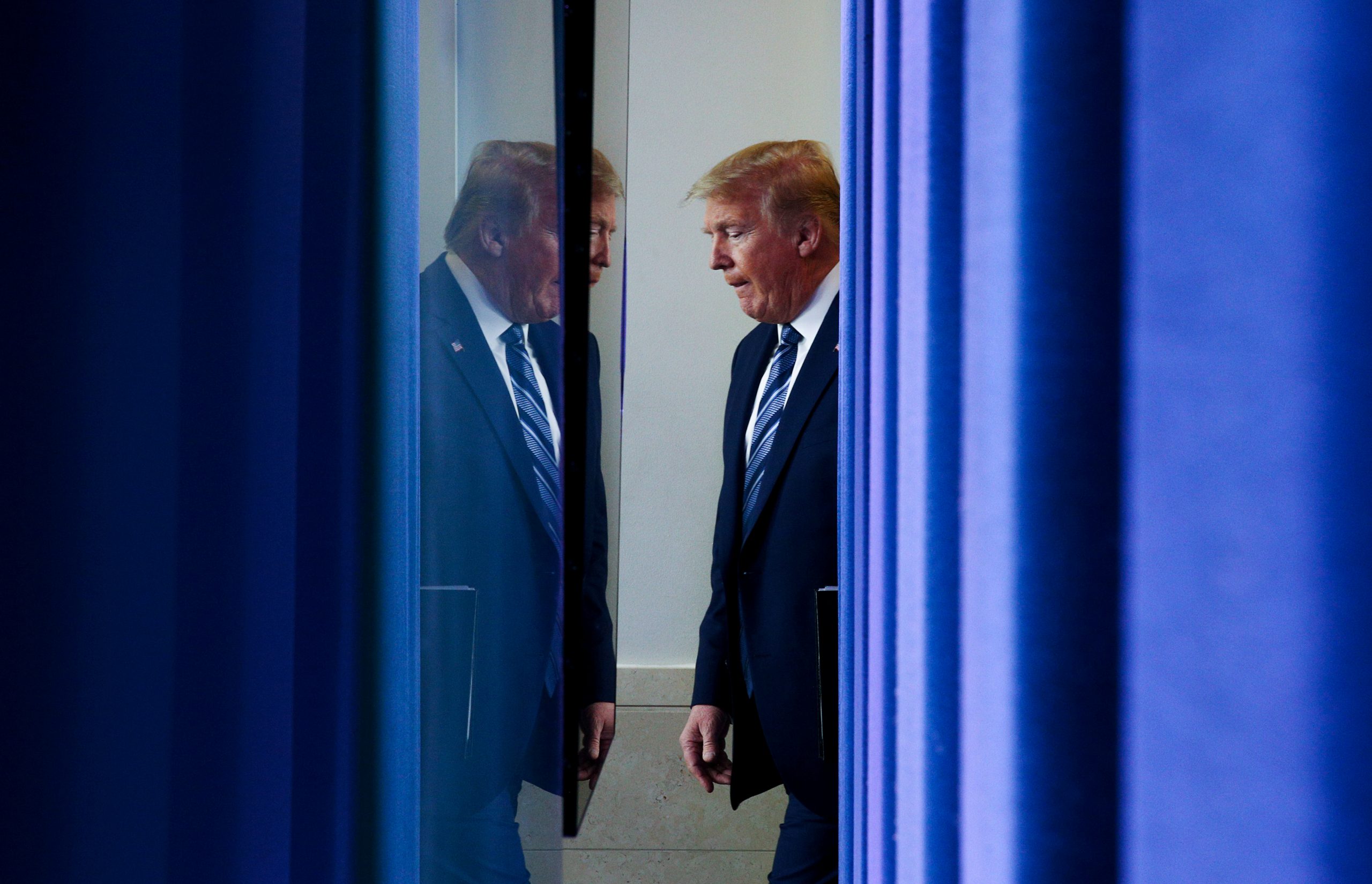President Donald Trump on Wednesday applauded steps taken by a handful of Republican-led U.S. states to start reopening their economies despite warnings of a potential fresh surge of coronavirus infections.
About a half dozen, mostly southern U.S. states, including Georgia, South Carolina and Tennessee led by Republican governors, are loosening stay-at-home guidelines, allowing some non-essential businesses to reopen and hoping to revive their state economies.
Trump, a Republican seeking re-election on Nov. 3, gave these states a show of support on Twitter on Wednesday.
“States are safely coming back. Our Country is starting to OPEN FOR BUSINESS again. Special care is, and always will be, given to our beloved seniors (except me!),” wrote Trump, who is 73.
Deaths from COVID-19, the respiratory illness caused by coronavirus, have exceeded 45,200 nationwide as cases climbed to more than 811,000, according to a Reuters tally.
Greg Abbott of Texas on Wednesday became the latest Republican governor to signal his intention to start lifting restrictions. Abbott said he would announce a plan next week to broadly reopen the state’s economy during the first week of May.
“It’s going to be broad-based. We want to make sure we open as many businesses as possible,” Abbott told Fox Business Network. “However, we want to make sure we do it in a very safe way that does not stoke an expansion of the COVID-19.”
States and local governments previously issued “stay-at-home” or “shelter-in-place” orders affecting about 94% of Americans to try to limit fresh cases of COVID-19, the respiratory illness caused by the virus.
The restrictions have battered the U.S. economy, with mandatory business closures leaving millions of Americans unemployed. Political leaders have engaged in an acrimonious debate over when and how to reopen the economy.
Georgia is giving the green light to gyms, hair salons, bowling alleys and tattoo and massage parlors to reopen on Friday, followed by movie houses and restaurants next week. The actions were ordered by Republican Governor Brian Kemp.
Rebecca Hardin, a 47-year-old hairdresser whose salon was shut down amid the pandemic, expressed concern that Georgia risked a fresh surge of infections and loss of life by opening up too quickly.
“I want to get back to work, but I’m worried it’s too soon,” Hardin said. “Friday seems awfully early when we’re facing a deadly disease that has no cure or vaccine.”
The state has relatively low case numbers and its per-capita death rate from coronavirus – 6 per 100,000 – is below the national average. Even so, Georgia on Monday reported 1,242 new infections over the prior 24 hours, the highest single-day tally in two weeks, while 94 people died, double the state’s previous daily record.
‘MY JAW DROPPED’
Cherish Burnham, a 45-year-old stay-at-home mother from Roswell, Georgia, said she was stunned by the governor’s decision, saying it could put more lives at risk.
“I saw his announcement flash on my phone and my jaw dropped,” Burnham said. “It’s careless and will be catastrophic to countless more lives in our state.”
The decision to ease restrictions has pitted some business owners and others eager to get the economy up and running again against a wary public and health officials warning of a potential resurgence in cases.
“It’s a matter of concern, this whole idea of opening up. It’s based on non-science generated parameters,” Dr. Boris Lushniak, dean of the University of Maryland School of Public Health, told Reuters in an interview this week.
A series of anti-lockdown protests have been held over the past week or so calling for bans on business to be lifted.
Republican politicians and people affiliated with Trump’s re-election campaign are organizing or promoting the protests in states that could be crucial battlegrounds in determining the outcome of the presidential election, according to people familiar with the matter. Conservative activists and gun-rights groups have played an instrumental role in the protests.
A Reuters/Ipsos opinion poll showed a majority of Americans believe stay-at-home orders should remain in place until public health officials determine lifting them is safe, despite the damage to the U.S. economy.
Even as states move ahead with plans to reopen, the director of the U.S. Centers for Disease Control and Prevention warned that a second wave of the coronavirus could be worse if it coincides with the start of the seasonal flu season.
“There’s a possibility that the assault of the virus on our nation next winter will actually be even more difficult than the one we just went through,” CDC Director Robert Redfield said in a Washington Post interview published on Tuesday.
(Reporting by Lisa Lambert in Washington, Rich McKay in Atlanta, Maria Caspani in New York and Nathan Layne in Wilton, Connecticut; Writing by Nathan Layne and WIll Dunham; Editing by Howard Goller)

























 Continue with Google
Continue with Google